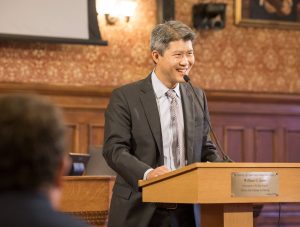City council race: Brian Worrell running for District 4
May 20, 2021
Real estate broker and small business owner Brian Worrell is running to be District 4 city councilor, representing the neighborhoods of Dorchester and Mattapan, as well as parts of Roslindale and Jamaica Plain.
With a background in accounting and entrepreneurship, Worrell’s priority, he said, is on helping the city recover from the pandemic, a plan which includes getting people vaccinated, tackle the food challenges and lack of transportation in the community and continue to offer financial and technological support to small businesses.
A graduate from Boston METCO program, a school integration program that enrolls students in high-performing public schools in the suburbs, Worrell said the program helped him get better education and resources and he wants to expand that quality of education to more students.
“I feel that opportunity for equity should not only be available for a select few, [it] needs to be the standard,” he said. “I love the city of Boston and I’m looking to continue to work for this city.”
Worrell is running against at least 10 candidates including Jacob Urena, Joel Richards, Deeqo Jibril, Nikkia Jean-Charles, Trevour Smith, William Dickerson, Leonard Lee, Troy Smith, Trina Ruffin and Josette Williams for the District 4 seat. The incumbent, Andrea Campbell, is running for Boston mayor.
The Scope spoke with Worrell to discuss his campaign’s top issues and his plans to address them if elected. The following conversation has been edited for length and clarity.
What has your experience been living and working in Boston?
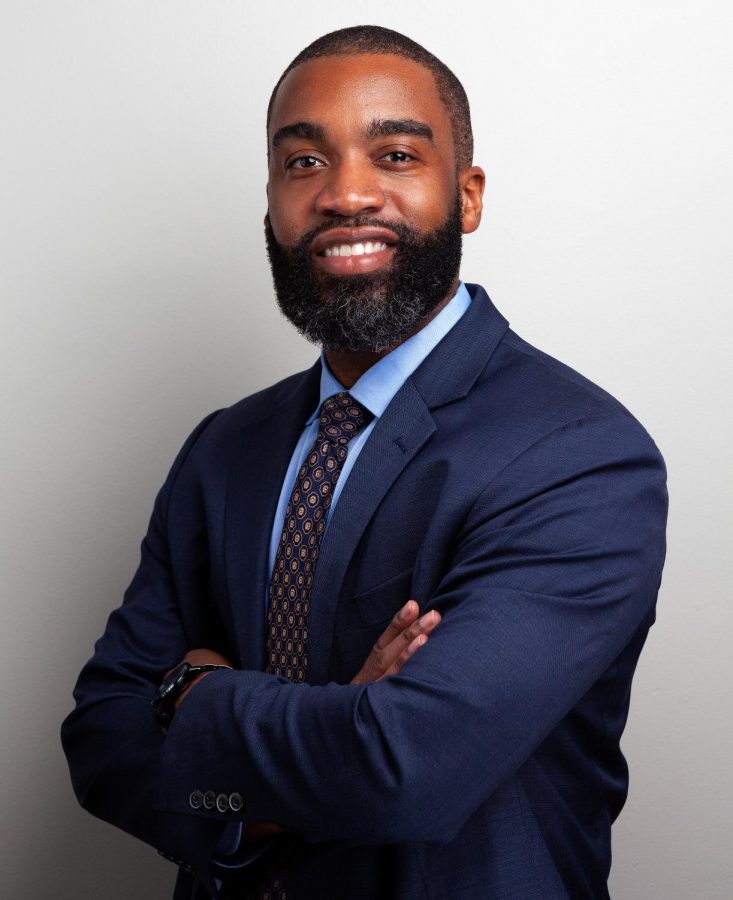
First and foremost, I love my community that I live in. My parents, my grandparents are from Jamaica and Barbados. They migrated here right to District 4 in search of opportunity.
My uncle still lives in the house that my grandparents bought and it’s the same house that I grew up in. My experience has been a good one. The city of Boston has programs that assist in creating equity, and I was able to attend a good amount of those programs growing up.
One of those programs that I attended that helped me was the METCO [Metropolitan Council for Educational Opportunity] program. That’s a program that helped me get to a better higher education and it’s given me a lot of resources. It’s unfortunate that not everyone in the city of Boston is able to have that quality of education. When I look back at what the difference was for a lot of students or kids that are my age [who] went down less fortunate paths, it was, the resources that they were exposed to.
And I feel that opportunity for equity should not only be available for a select few, [it] needs to be the standard. But overall I love my community. I love the city of Boston and I’m looking to continue to work for this city.
What are the most important policy issues on your platform?
Recovering from the devastating impact that COVID-19 has caused in our community is the number one priority. And that is a multi-phase plan. We need to start by getting as many people vaccinated as possible. Our campaign organized a mobile vaccination site with the help of the Cape Verdean Association of Boston, Pastor Montgomery, Trinity Management and Whittier Medical.
Together, we were able to get close to 400 people vaccinated in a single day. We believe that resources should be easily accessible in an abundance. Many of our age strong residents are fearful of leaving their homes and accessibility should be the new normal. During these times, we were also able to donate masks to various organizations.
We also recognize the food challenges and lack of transportation that our families are burdened with. We took the initiative to begin delivering food to the age strong community, into our Boston Public School students, and families. We are still doing this on a monthly basis because we believe that no one should have to go without a meal.
Hopefully in the next several months to a year, everyone that wanted the vaccine will have been fully vaccinated. As we recover, we need to continue to provide relief and support to our small businesses and help get people back to work. During the pandemic, our campaign has worked with small businesses to apply for grants and loans that they needed.
During these times, we will need to continue to offer support to our small businesses. They are [the] backbone of our community. We must put them in position to be able to thrive in these times, whether that is through providing pro bono services in legal, marketing, accounting, and or business subscriptions and software, such as QuickBooks [an accounting software package geared mainly toward small and medium-sized businesses] and WordPress [a content management system used to create websites].
Unemployment is high. Getting people back to work is crucial. My team and I are working on partnerships with programs to train our community on skills and jobs of the future. Many folks in the community are employed by the gig economy, you know, Uber and Lyfts, the hospitality and service industry, which were deeply impacted by the pandemic.
As technology advances and recessions become inevitable, our community will continue to suffer in these industries. I would like to offer our community access to training on sustainable jobs. Recession, pandemic-proof jobs, such as web developers, CNAs [Certified Nursing Assistant], RNs [Registered Nurse], HVAC [Heating, Ventilation, Air Conditioning and Refrigeration technicians], electricians, plumbers, jobs of those natures.
This also goes hand in hand with education. [As] our students have been removed from our classrooms for over over a year, we need to provide a resource to our students, create and expand after school and summer enrichment and programs that will help our students be ready for the next grade, college and or career. You also have to implement SEL [Social and Emotional Learning] in our students curriculum and be checking in on mental health as well as our adults.
I think we need to start expanding the services that the school provides to us, to their students and families. It’s a matter of having a food pantry in the school and a representative from the housing and SNAP departments there to assist. It might make the lives of students and their family that much easier.
These are tough times. Stability is important and ensuring stability as we recover is something we have to do. We need to continue to provide housing assistance by providing relief to homeowners and tenants. I assisted homeowners and renters with information and applied for the much needed relief to stay in their homes. It is important that we try to increase the home ownership rate amongst black and Brown communities by expanding on programs such as the one mortgage and one plus mortgage. We could do more in these programs to create pathways for homeownership in our community, [we] also need to provide assistance for homeowners to help them maintain and keep their home.
What are your primary plans for implementation of those policies and your major goals?
It all begins by having a partnership with the community. I plan to engage, organize, and mobilize the community. I want our community to create partnerships with private companies and nonprofits.
We’ll have to continue to listen to the professionals in the field and hold community hearings and hearings at the city council level. It will also take conversations amongst whoever will be our new mayor, city councilors, state reps and state senators to get legislation passed.
It’s about being proactive instead of reactive. It’s about expanding on programs that already exist and also replicating them. We also need to explore new ideas. Innovation is not solely set for technology, immaterial things. We need new ideas and a fresh perspective. I would intentionally seek out new models that are working in other cities that [set] our community on the path to thrive.
For example, I’m an advocate for public safety reform. I believe that we should create a crisis team to respond to site calls. This will help the city as a whole [to] utilize mental health services to underserved communities. Social workers and mental health workers on the front lines will help those in need. This will allow the police department to focus more on violent acts and stopping crime.
I also believe that accessibility and being aggressive in communicating policy or legislation that has passed to our community will help engage our community. A lot of people have lost faith in city government, and the bureaucracy can be discouraging. I will host office hours in the district and ask representatives from each city department to participate. That way we can show our community that we’re here to serve and meet them in the neighborhood.
How does your background prepare you for this job and why did you decide to run?
First and foremost, I love our community. There’s no place like home. I’m a lifelong District 4 resident. Issues that I hear when talking to neighbors or at civic association meetings are directly related to my experiences and skills. When you have the skillset to help in the advancement of people, it’s only right that you put them in use. I graduated from Northeastern University with a degree in accounting and entrepreneurship, with over 20 years of experience in real estate, I understand and know how to navigate the industry. I have ideas on how to increase home ownership and reduce homelessness in our community.
I have experience working with budgets and over 10 years of experience in facilities management. So I understand the importance [of] the maintenance of the community. I know how to create partnerships, how to recognize and create opportunities. As a real estate broker, it is a law that I uphold a fiduciary responsibility to the people I serve, which means putting their interest above everything else.
I’ll take the same mindset and responsibility to City Hall. I also know how to listen. Although devastating, COVID-19 has presented us with a moment to build equity through programs, organizations, and policies. This is a moment where our community needs both leadership and their interests brought to the forefront.
I became a small business owner to create opportunities for my community and to educate my clients. We need our elected officials to do the same. The time is calling for a proactive, accessible and engaging elected official that can partner with the community to increase civic engagement, to achieve our goals. And I feel like I’m the city councilor to do that.
How is your campaign different from the other candidates that are running to represent it?
My campaign is centered around listening, creating ideas and taking action. During the campaign, my volunteers and I spoke with residents and learned their concerns and needs.
And we decided to take action. We have donated masks, organized pop-up vaccination sites, delivered food to the community and helped small businesses, landlords and renters apply for relief. Our campaign also has awesome volunteers that are reflective of the community. Our campaign is also not one backed by any special interests. The only interest is what is, what is best for our community.
What do you love about your district and what do you think that you would want to work on as a city councilor?
First of all, this is home. I love the fact that District 4 is a multicultural community. And as a foodie, I feel like I’m spoiled living here. The district also feels like a neighborhood, many are willing to help their neighbors by looking out for one another.
It’s a very neighborly community. My parents, brother, some aunts and uncles are also lifelong District 4 residents, some of us just walk to each other’s house. Live in the district for 37 years, you make friends and have neighbors that are like family. We also have a golf course, a zoo and plenty of public transit service.
However, many fail to recognize the net worth disparities of Black Bostonians, $8 compared to $247,000 for white Bostonians. The home ownership rate is at 40% amongst Black Bostonians compared to 73%, for white Bostonians. The education achievement gap is where, one in four Black and Latinx students can read at or above their grade level, grade level.
These are all areas where we can make strides. This is the time we are creating equity and opportunities. We need to create the partnership and bring the resources to address these issues immediately.
Is there anything else that you want to share that I didn’t ask you?
I feel that this is a pivotal moment in our history and the policies and legislations and programs that we create now, future generations will be looking back at. We need to make sure that our community is prepared and it has the right person in there to engage, inspire, mobilize our community and I wish to get everyone’s support. But I also encourage everyone to vote, even if it’s, for anyone else.


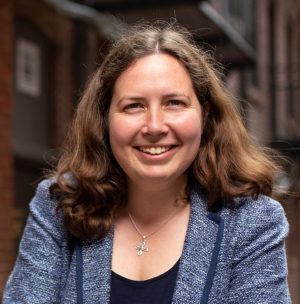


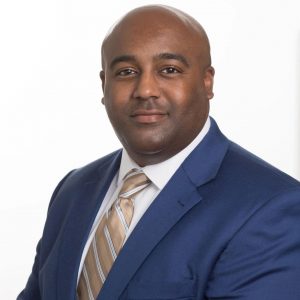
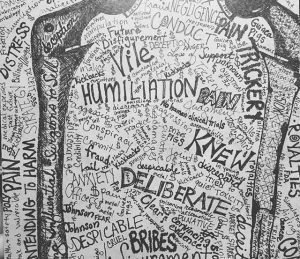
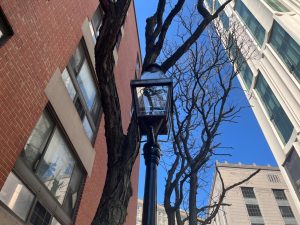
![Worcester, MA — Pearson’s recent piece “Lipstick on a Pig” contends with her self-perception. The title of the painting came to her first, “fixating in [her] head quite a lot,” Pearson said.](https://thescopeboston.org/wp-content/uploads/2024/03/2-300x200.jpg)

